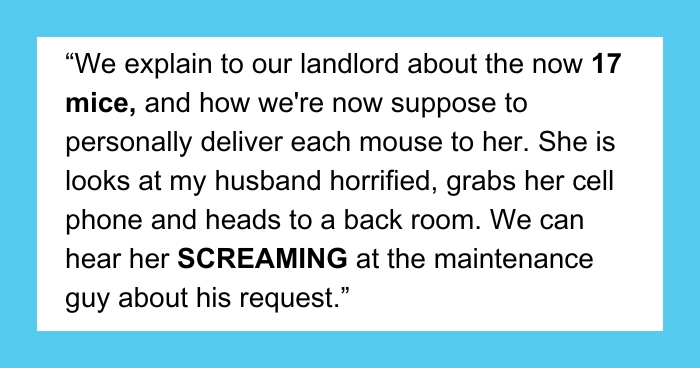Maintenance Asks Tenant To Provide “Proof” Of Mouse Infestation By Bringing What They Catch To The Main Office, They Maliciously Comply
In this New York Times Best of Modern Love essay from autumn 2019, a mouse war rages in an apartment. It all starts when their cat strolls proudly with a mouse in his mouth, in need of a maintenance call. At first, maintenance thinks it’s nothing to worry about, because there’s no mouse shit on the floor and all the traps are empty. But that was just the beginning, and soon more mice were showing up — up to 16 documented intrusions via photos — and the tenants became increasingly frustrated. Though the landlord will not get a professional exterminator for the tenants demanding one, he will send maintenance to repeatedly “patch” holes and other possible entries without nipping the bloody situation in the bud.
And in the coup de grâce of ridiculousness, maintenance advises the tenants to bring each captured mouse into the office for “analysis.” The couple bends the knee to malicious compliance for the absurd. One brings a dead mouse to the office in the middle of a bustling leasing tour, highlighting management’s incompetence to future residents. The landlord was mortified by the scene and, fearing damage to his reputation, promptly summoned a pest exterminator, who then detected and sealed hundreds of access points. And with that, the issue with the mouses finally over.
Read for more info Reddit
What do you do with 17 mice in your home? Probably pack them up and bring them to the landlord
Well, OK, not 17, but still, at least one—it’s enough proof of an infestation, and a good way to “conform to the letter, but not the spirit, of a [ridiculous] request”
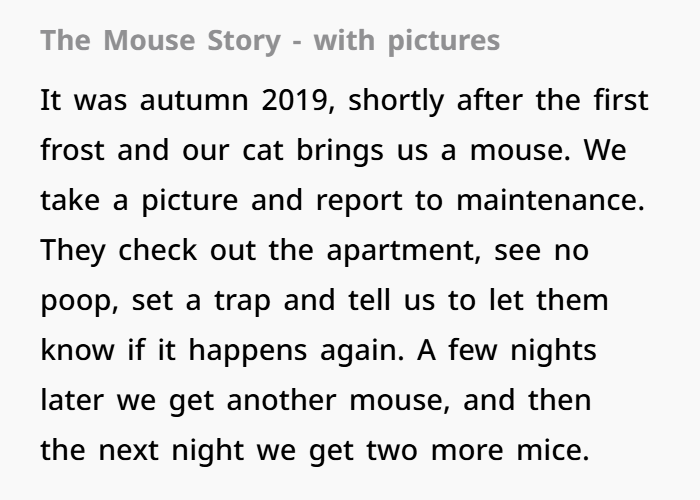


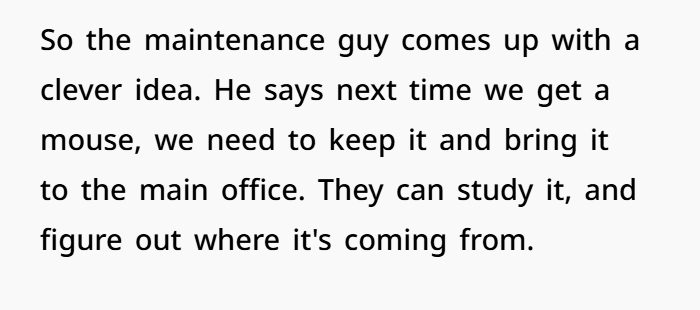
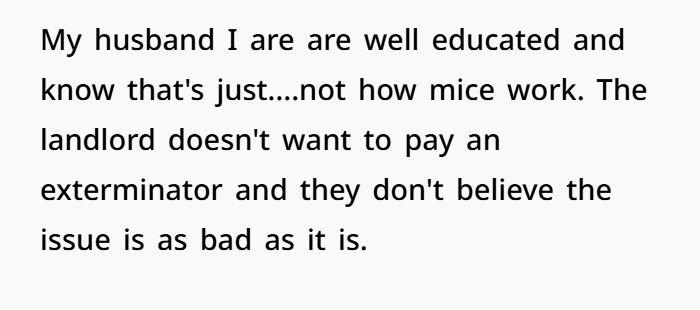
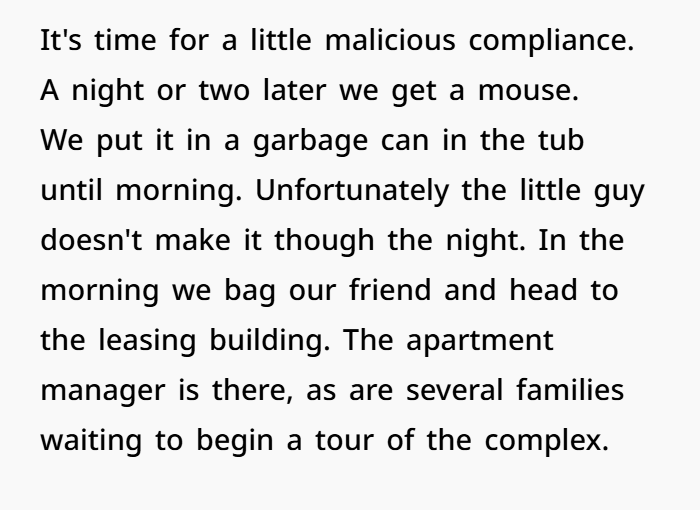

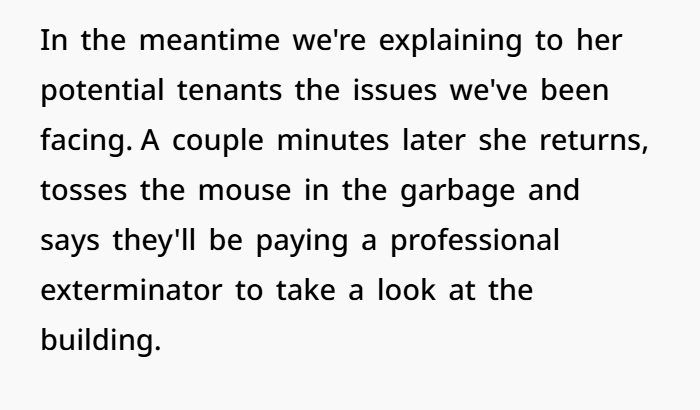
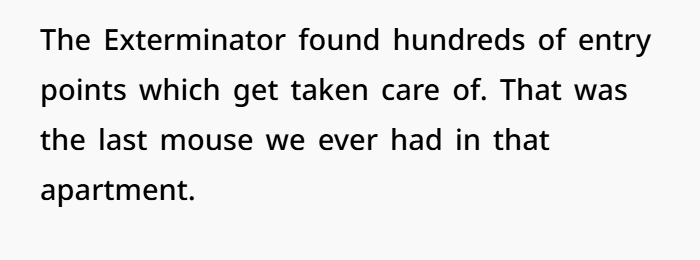
And all of this because some maintenance guy didn’t want to call a professional exterminator, or couldn’t handle patching more than 2 holes
Needless to say, the landlord ended up having to call in a professional, who found 100s of locations where mice were coming in
The Bigger Picture: Pest Management and Legal Obligations
This story highlights more than just a tale of stubbornness and ingenuity—it underscores a landlord’s legal and ethical responsibilities in pest control. According to most state laws in the U.S., landlords are required to ensure their rental properties are habitable and safe, which includes addressing pest infestations promptly. Ignoring tenant reports of mice, particularly after repeated complaints, can violate implied warranty of habitability clauses common in lease agreements.
Relevant Precedents and Legal Insights:
- Habitability Standards: In many jurisdictions, courts have ruled that severe pest infestations breach habitability standards, potentially allowing tenants to withhold rent, terminate leases early, or sue for damages.
- Case Study: In Knight v. Hallsthammar, the court determined that persistent vermin issues violated tenants’ rights, holding landlords accountable for neglect.
- Professional Exterminators vs. DIY Maintenance: While landlords may attempt basic pest control, severe infestations often require licensed exterminators. Failure to hire professionals, as in this story, could be construed as negligence.
- Documented Evidence: The tenants’ photos of 16 mice were crucial in their case. Visual documentation is often pivotal in disputes, providing undeniable proof of ongoing issues.
Folks found the story quite entertaining, sharing their own stories, joking around, and asking questions with the post author’s active attendance in the comment section



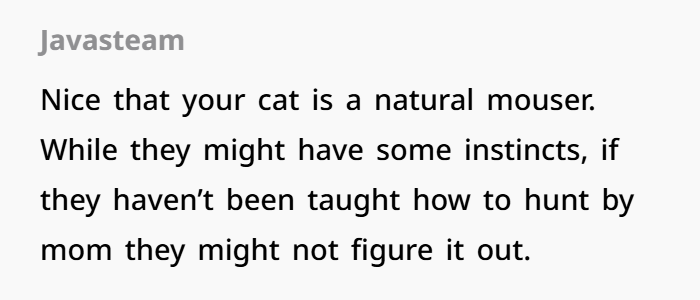
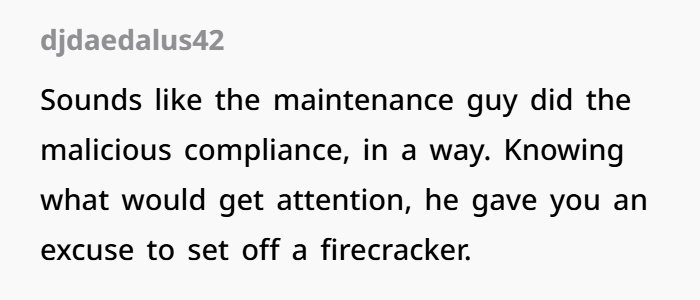
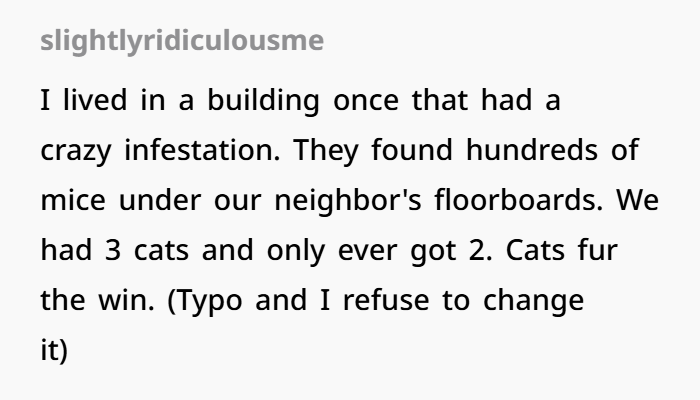
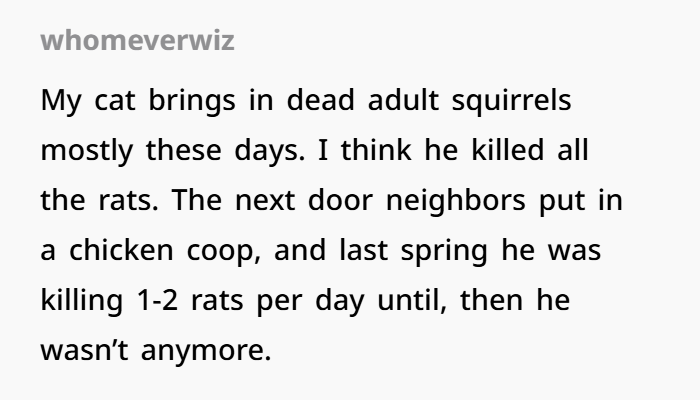

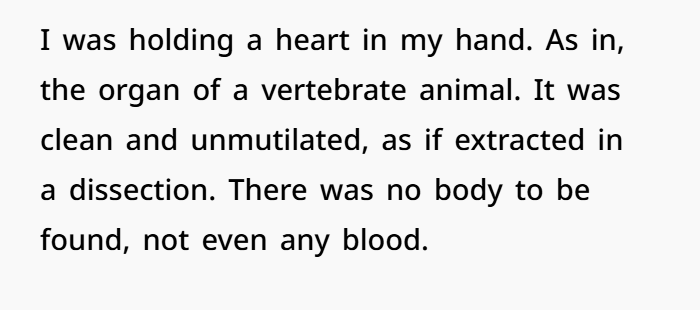
Malicious compliance is a form of subtle resistance where individuals follow absurd instructions to the letter, often to highlight the flaws in those directives. Here, delivering a dead mouse in a public setting forced the landlord to confront the seriousness of the infestation and the impact of their inaction. By doing so, the tenants not only resolved their problem but also likely prevented future issues for others in the complex.
Ultimately, this story is a testament to the power of persistence, creative problem-solving, and the value of knowing your rights as a tenant.

